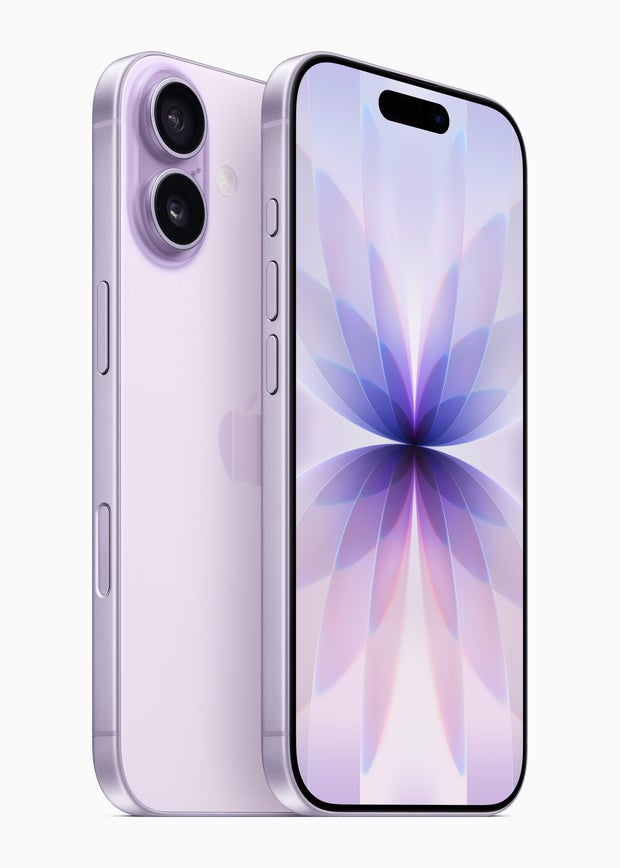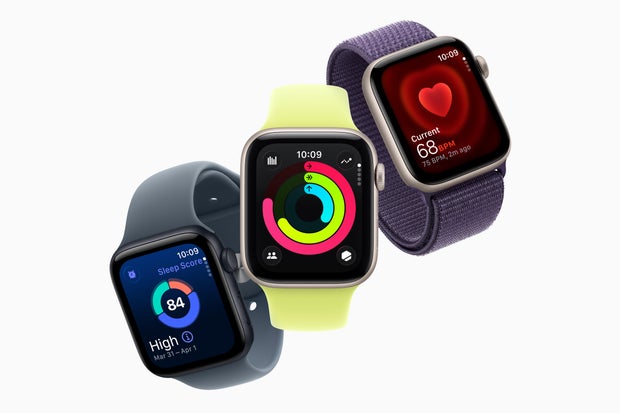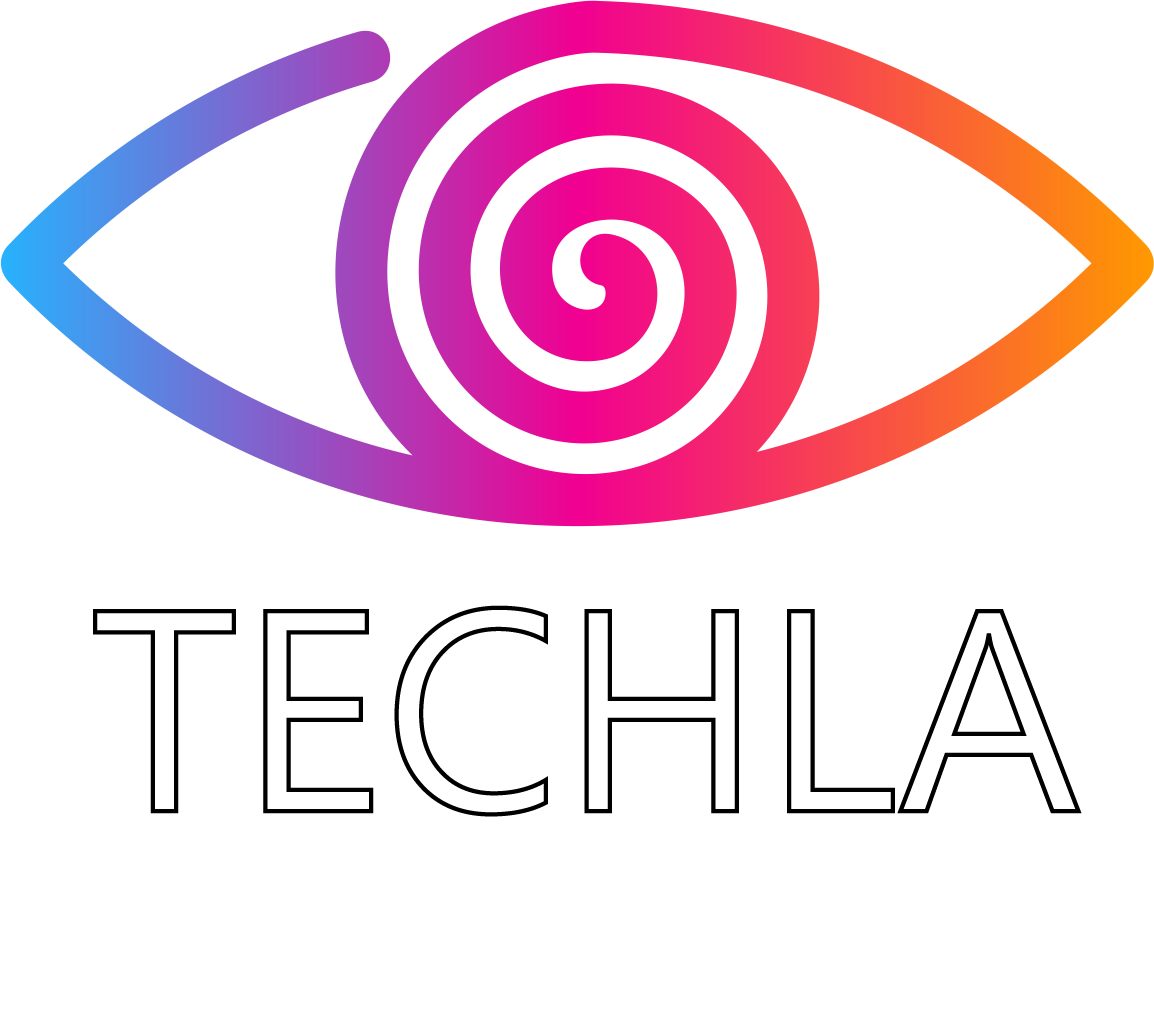#Heres #products #Apple #unveiled #annual #tech #launch
Apple rolled out a new line of products Tuesday, including the thinnest iPhone ever made, a new version of the AirPods Pro and a watch that can monitor your blood pressure. They’re the first new products from Apple since the global tariff war began earlier this year.
#Heres #products #Apple #unveiled #annual #tech #launch
Apple on Tuesday unveiled its latest generation of iPhones, AirPods and watch at the technology company’s launch event, held annually at its Cupertino, California, headquartetrs.
The iPhone 17 features larger, 6.3-inch display and includes the new A19 chip to help power Apple’s AI features. The devices’ front camera has also been upgraded to provide a wider field of view and new sensor allowing users to take landscape photos without having to rotate the phone.
Apple also is releasing an Phone 17 Air, which the company said is its thinnest and lightest model ever. All new iPhone models feature improved camera capabilities that let users take sharper photos and record more stable videos, according to Apple.
The iPhone 17 features larger, 6.3-inch display and includes the new A19 chip to help power Apple’s AI features. Business Wire 
The AirPods Pro 3 feature improved noise cancellation capabilities and a live translation feature powered by Apple AI. That new functionality lets consumers use the devices to hear a speaker in one language and get an English-language in real time.
The AirPods, which are priced at $249, have also been redesigned to better fit wearers’ ears, according to Apple.
The Apple Watch 11 features upgrades that can alert users to potentially serious health issues. It can also detect if the wearer has fallen down, as well as monitor users heart rates and track their sleep.
Apple’s latest watches can alert users to potentially serious health issues, according to the company. Business Wire 
Since 2020, Apple has charged $800 for its basic iPhone and $1,200 for its top offering, but some analysts think the company may raise prices by $50 to $100 on some of the new models.
“We estimate roughly 315 million iPhone users, of 1.5 billion users worldwide, have not upgraded their phones in over four years, speaking to an upgrade opportunity on the horizon for [Apple],” Wedbush tech analyst Dan Ives said in a report.
— This is a developing story and will be updated.
The Associated Press
contributed to this report.
Megan Cerullo is a New York-based reporter for CBS MoneyWatch covering small business, workplace, health care, consumer spending and personal finance topics. She regularly appears on CBS News 24/7 to discuss her reporting.
#Apple #unveils #iPhone #watch #upgraded #AirPods #annual #tech #launch
Sydney — Humans beat generative AI models made by Google and OpenAI at a top international mathematics competition, but the programs reached gold-level scores for the first time, and the rate at which they are improving may be cause for some human introspection.
Neither of the AI models scored full marks — unlike five young people at the International Mathematical Olympiad (IMO), a prestigious annual competition where participants must be under 20 years old.
Google said Monday that an advanced version of its Gemini chatbot had solved five out of the six math problems set at the IMO, held in Australia’s Queensland this month.
“We can confirm that Google DeepMind has reached the much-desired milestone, earning 35 out of a possible 42 points – a gold medal score,” the U.S. tech giant cited IMO president Gregor Dolinar as saying. “Their solutions were astonishing in many respects. IMO graders found them to be clear, precise and most of them easy to follow.”
Around 10% of human contestants won gold-level medals, and five received perfect scores of 42 points.
U.S. ChatGPT maker OpenAI said its experimental reasoning model had also scored a gold-level 35 points on the test.
The result “achieved a longstanding grand challenge in AI” at “the world’s most prestigious math competition,” OpenAI researcher Alexander Wei said in a social media post.
“We evaluated our models on the 2025 IMO problems under the same rules as human contestants,” he said. “For each problem, three former IMO medalists independently graded the model’s submitted proof.”
Google achieved a silver-medal score at last year’s IMO in the city of Bath, in southwest England, solving four of the six problems.
That took two to three days of computation — far longer than this year, when its Gemini model solved the problems within the 4.5-hour time limit, it said.
The IMO said tech companies had “privately tested closed-source AI models on this year’s problems,” the same ones faced by 641 competing students from 112 countries.
“It is very exciting to see progress in the mathematical capabilities of AI models,” said IMO president Dolinar.
Contest organizers could not verify how much computing power had been used by the AI models or whether there had been human involvement, he noted.
In an interview with CBS’ 60 Minutes earlier this year, one of Google’s leading AI researchers predicted that within just five to 10 years, computers would be made that have human-level cognitive abilities — a landmark known as “artificial general intelligence.”
Google DeepMind CEO Demis Hassabis predicted that AI technology was on track to understand the world in nuanced ways, and to not only solve important problems, but even to develop a sense of imagination, within a decade, thanks to an increase in investment.
“It’s moving incredibly fast,” Hassabis said. “I think we are on some kind of exponential curve of improvement. Of course, the success of the field in the last few years has attracted even more attention, more resources, more talent. So that’s adding to the, to this exponential progress.”
#Humans #triumph #annual #math #Olympiad #machines #catching
